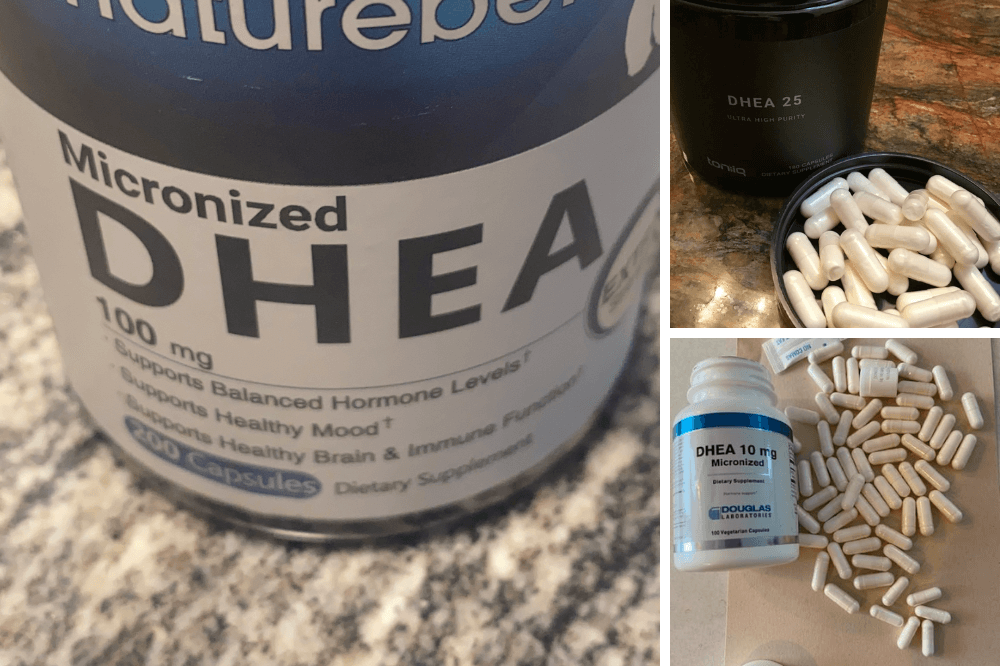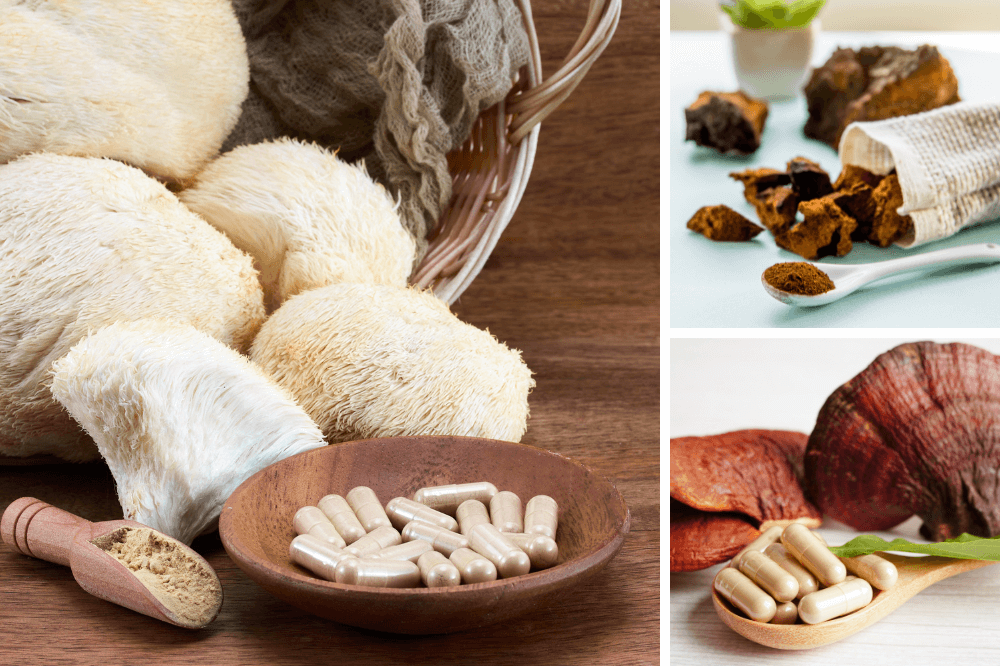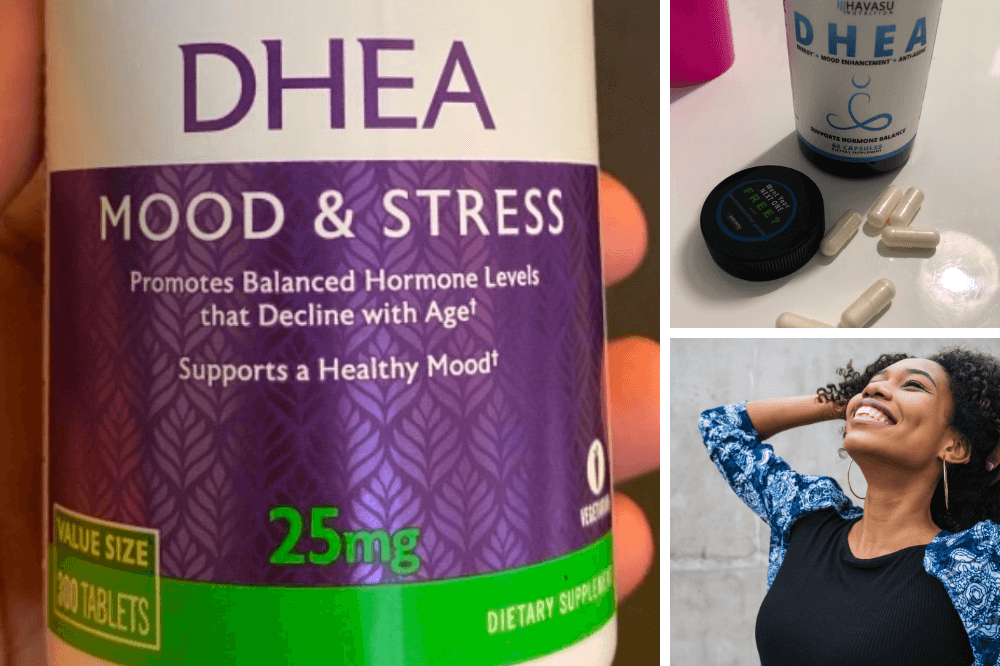Dehydroepiandrosterone (DHEA) is a naturally occurring steroid hormone produced primarily by the adrenal glands. DHEA is a hormone that plays a crucial role in the synthesis of estrogen and testosterone. As we age, our DHEA levels decline, which can impact various bodily functions, including the production of sex hormones like testosterone and estrogen. DHEA supplementation is a popular approach to counteracting the natural decline in DHEA levels in the body and to address health concerns associated with aging, hormonal imbalances, and other medical conditions.
In this article, we'll explore what DHEA supplementation is, how it works, its potential benefits, and important considerations for people who may benefit from taking DHEA supplements.

1. Understanding Dehydroepiandrosterone (DHEA)
DHEA is a hormone produced by the body's adrenal glands, which are small glands located above the kidneys. DHEA is a hormone that plays a crucial role in the synthesis of estrogen and testosterone. DHEA serves as a precursor to both male and female sex hormones, specifically testosterone and estrogen.
As a steroid hormone, DHEA has multiple roles in the human body, including regulating metabolism, the immune system, and cognitive function. It is also converted into DHEA sulfate (DHEAS), the primary form found in the blood, which is important for many of its biological effects.
2. DHEA Levels Over Time
DHEA production peaks in early adulthood and declines significantly after the age of 30. As DHEA levels decline, individuals may experience symptoms of aging, such as muscle weakness, reduced bone density, and aging skin. Decreased DHEA levels are also associated with conditions such as adrenal insufficiency and cognitive decline. This natural decline in DHEA has led to interest in DHEA supplementation as a potential therapy for age-related issues.
3. Health Benefits of DHEA Supplementation
DHEA supplements are often marketed as a solution for various age-related health issues. Some of the key health benefits of DHEA include:
- Enhancing cognitive function: Studies suggest that DHEA may help improve memory and mental clarity.
- Improving mood and treating depression: DHEA supplementation has been explored as a treatment for mood disorders like depression, with some research showing potential benefits.
- Increasing muscle mass and strength: DHEA may improve muscle mass, particularly in older adults and those with low testosterone levels.
- Supporting bone density: DHEA has been linked to improved bone mineral density, which may help prevent conditions like osteoporosis.
4. DHEA and the Aging Process
Many people turn to DHEA supplementation in hopes of slowing the aging process. Since DHEA levels naturally decrease with age, using DHEA supplements may help address common signs of aging, such as aging skin and reduced muscle tone. In fact, some consider DHEA an essential part of anti-aging therapy, as it has shown promise in improving skin health and boosting overall vitality.
5. DHEA for Specific Groups
DHEA for Older Adults
As we age, our body's ability to maintain optimal hormone levels decreases. DHEA supplementation is particularly beneficial for older adults, who may experience symptoms like reduced cognitive function, loss of muscle strength, and decreased bone mass due to low DHEA levels. Taking DHEA supplements may help improve quality of life and address these issues.
DHEA for Postmenopausal Women
For postmenopausal women, declining levels of female sex hormones can lead to various health issues, including vaginal dryness, reduced bone density, and vaginal atrophy. DHEA supplementation has been studied as a way to support bone health and alleviate menopausal symptoms. Research suggests that DHEA may help postmenopausal women improve bone mineral density and manage vaginal health, making it an attractive option for those looking for hormone replacement solutions.
DHEA for Men
DHEA also has notable benefits for men, particularly as they age. One of the key reasons older men turn to DHEA is to address erectile dysfunction and low testosterone levels. DHEA supplements may enhance physical performance and improve muscle mass, which can be particularly beneficial for men looking to maintain their vitality as they age.
6. DHEA and Weight Management
In addition to its effects on hormones, DHEA supplementation may impact body composition. Studies suggest that DHEA can help reduce body fat, making it a potential tool for those looking to improve their overall health and weight management. Its role in promoting fat mass reduction and improving muscle tone is particularly relevant for those concerned with maintaining a healthy weight.

7. DHEA and Hormone-Sensitive Conditions
While DHEA supplementation has many potential benefits, it's important to exercise caution in individuals with certain hormone-sensitive conditions. For those with a history of breast cancer, prostate cancer, or other hormone-sensitive cancers, DHEA may not be recommended. Since DHEA can convert into estrogen, it may exacerbate conditions that are driven by estrogen receptor agonists.
8. DHEA for Adrenal Insufficiency
Individuals with adrenal insufficiency, a condition where the adrenal glands do not produce enough hormones, may benefit from DHEA supplementation. In these cases, DHEA can help restore hormonal balance and support overall health. Taking DHEA supplements may help manage symptoms like fatigue, muscle weakness, and hormonal imbalances in those with adrenal insufficiency.
9. Cognitive Function and Mood
DHEA supplementation has shown promise in improving cognitive function, particularly in older adults. Studies have explored its role in enhancing memory, attention, and overall brain health. Additionally, DHEA supplements may be beneficial for individuals suffering from mood disorders, as DHEA is believed to have mood-enhancing properties. It has even been studied as a potential treatment to treat depression.
10. DHEA and Polycystic Ovary Syndrome (PCOS)
DHEA supplementation may also play a role in managing polycystic ovary syndrome (PCOS), a hormonal disorder that affects many women. DHEA may help balance hormone levels and improve symptoms associated with PCOS, including insulin sensitivity and reproductive health. However, more research is needed to fully understand its impact on this condition.
11. DHEA for Immune System Support
There is some evidence that DHEA may support the immune system, particularly in individuals with chronic health conditions like systemic lupus erythematosus (SLE). By supporting the body's natural immune responses, DHEA may help reduce inflammation and promote overall well-being in those with autoimmune disorders.
12. DHEA and Athletic Performance
Some athletes turn to DHEA in an attempt to enhance their athletic performance, particularly when it comes to building muscle mass and improving physical endurance. However, it's important to note that DHEA supplementation is banned by organizations like the National Collegiate Athletic Association (NCAA) and the World Anti-Doping Agency (WADA) due to its steroid-like effects.
13. Side Effects of DHEA Supplementation
While DHEA supplements have many potential benefits, they are not without risks. Common side effects include oily skin, acne, and hormonal imbalances. In some cases, individuals may experience more serious side effects, such as blood clotting disorders, high blood pressure, and even liver disease. It's essential to monitor for adverse effects when taking DHEA.
14. How to Take DHEA Supplements
DHEA supplements are available in various forms, including oral DHEA, topical creams, and tablets. The recommended DHEA dosage will depend on factors such as age, gender, and specific health concerns. Oral DHEA therapy is the most common form, but topical applications are also used for certain conditions like vaginal atrophy.
15. Choosing the Right DHEA Supplement
When it comes to selecting the right DHEA supplement, making an informed choice is crucial to ensure you're getting a product that is both safe and effective. Here are some essential tips to guide you:
- Look for third-party testing: Opt for DHEA supplements that have undergone rigorous testing by third-party organizations such as NSF International or ConsumerLab.com. This ensures the product's purity and potency, giving you peace of mind about what you're putting into your body.
- Check the label: Always read the label carefully. It should clearly state the amount of DHEA per serving and the recommended dosage. This transparency helps you manage your intake and avoid any potential overdosing.
- Consider the form: DHEA supplements are available in various forms, including capsules, tablets, and creams. Choose the form that best suits your needs and lifestyle. For instance, oral DHEA is popular for its convenience, while topical creams might be preferred for localized issues like vaginal atrophy.
- Check the manufacturer's reputation: Do some research on the manufacturer. Look for reviews and ratings from other customers to ensure you're buying from a reputable source. A well-regarded manufacturer is more likely to produce high-quality supplements.
- Consult with a healthcare professional: If you're uncertain about which DHEA supplement to choose, it's always a good idea to consult with a healthcare professional. They can provide personalized advice based on your health status and needs.
By following these tips, you can make a well-informed decision and choose a DHEA supplement that will best support your health and wellness goals.
16. Who Should Avoid DHEA Supplementation?
Certain individuals should avoid DHEA supplementation, especially those with a history of hormone-sensitive cancers or blood clotting disorders. Because DHEA can alter hormone levels, it's crucial to consult with a healthcare provider before starting any DHEA supplement regimen.

17. Drug Interactions and Risks
DHEA can interact with various medications, including blood thinners and aromatase inhibitors used in the treatment of hormone-related conditions. Combining DHEA with these medications may increase the risk of complications, making it vital to speak with a healthcare provider before taking DHEA.
18. Importance of Medical Supervision
While DHEA supplements offer numerous potential benefits, it's essential to use them under medical supervision, especially if you have underlying health conditions or are taking other medications. Here's why medical oversight is crucial:
- Monitoring DHEA levels: A healthcare professional can regularly monitor your DHEA levels to ensure they remain within a safe range. This helps in adjusting the dosage as needed to avoid any adverse effects.
- Interactions with medications: DHEA can interact with various medications, including blood thinners and diabetes medications. A healthcare professional can help you navigate these interactions to prevent any harmful side effects.
- Hormone-sensitive cancers: If you have a history of hormone-sensitive cancers, such as breast or prostate cancer, it's vital to weigh the risks and benefits of DHEA supplementation. A healthcare professional can provide guidance tailored to your specific health history.
- Adrenal insufficiency: For individuals with adrenal insufficiency, DHEA supplements can help manage symptoms. However, it's crucial to do so under medical supervision to ensure the supplements do not exacerbate the condition.
- Postmenopausal women: Postmenopausal women may benefit from DHEA supplements to manage symptoms like vaginal dryness and reduced bone density. However, they should use these supplements under medical supervision to mitigate the risk of hormone-sensitive cancers and other health issues.
By choosing the right DHEA supplement and using it under medical supervision, you can maximize the benefits while minimizing the risks associated with DHEA supplementation. Always consult with a healthcare provider to ensure that DHEA supplementation is appropriate for your individual health needs.
19. Research and Future of DHEA Supplementation
Though DHEA supplementation has been studied for its potential benefits in areas such as aging, cognitive function, and hormone therapy, more research is needed to fully understand the long-term effects and safety of DHEA use. The evolving science behind DHEA continues to generate interest, particularly in how it can be used to improve quality of life as we age.
Conclusion
In conclusion, DHEA supplementation offers a wide range of potential health benefits, particularly for aging individuals and those with hormonal imbalances. Whether it's improving cognitive function, supporting bone health, or enhancing mood, DHEA plays a significant role in maintaining overall well-being. However, as with any supplement, it's crucial to consult with a healthcare provider to determine if DHEA supplementation is right for you, especially if you have underlying health conditions.











